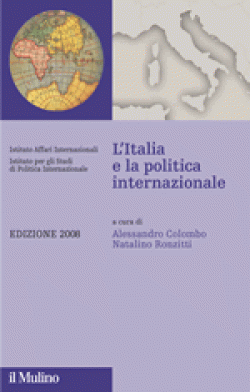L'Italia e la politica internazionale. Edizione 2008
The ninth edition of the IAI /ISPI Yearbook is devoted to international relations in 2007. The first part goes over developments on the international scene which, with respect to the previous year, mark a return to the traditional competition between great powers. In particular, Russia seems once again to aspire to the role of great power, causing tensions in relations with the United States. The realignment of international politics along more traditional lines has also allowed Europe to regain a space for itself. Another issue that characterised 2007 was nuclear proliferation, both horizontal and vertical. Two contributions focus on the Greater Middle East: one is more general, aimed at identifying new initiatives in the region; the other deals with the Israelo-Palestinian question. Another chapter looks at the private military and security companies operating around the world, a phenomenon that requires regulation.
The second part centres on Italian foreign policy and Italian missions abroad, now a stable component of Italy’s external action. The UN, NATO and the EU continue to represent the leitmotiv of Italy’s foreign policy, allowing the government to maintain a delicate balance from the Israelis and the Palestinians and to play a mediating role in the Lebanese crisis. The third part is dedicated to the European Union, with the usual institutional chapter as well as others on defence policy and the controversial question of Turkey’s entry into the EU. A significant event in 2007 was the signing of the Lisbon Treaty, which was meant to put an end to the crisis triggered by the lack of ratification of the Constitutional Treaty. The fourth part explores the difficulties in the international financial system brought on by the sub-prime mortgage crisis and possible remedies. An essay focuses on global warming. The fifth part closes the Yearbook with a study of the most important area crises: besides the Israelo-Palestinian conflict, the Yearbook concentrates on Kosovo, Burma and Pakistan.
-
Details
Bologna, Il Mulino, June 2008, 324 p. -
ISBN/ISSN/DOI:
978-88-15-12494-4
Introduzione ![]()
Abbreviazioni
Parte prima
1. L'evoluzione dello scenario internazionale, di Alessandro Colombo
2. La Russia e le relazioni con Europa e Stati Uniti, di Riccardo Alcaro
3. L'evoluzione della politica interna russa ed i rapporti con il vicinato, di Serena Giusti
4. La questione nucleare: proliferazione orizzontale e corsa agli armamenti, di Corrado Stefanachi
5. Compagnie private militari e di sicurezza, di Maurizio Cremasco
6. La prospettiva regionale del Medio Oriente nel 2007, di Roberto Aliboni
Parte seconda
7. La politica estera italiana, di Marco Clementi
8. Le missioni italiane all'estero: Afghanistan e Libano, di Lucia Marta, Nicoletta Pirozzi e Natalino Ronzitti
Parteterza
9. L'evoluzione del mercato europeo della difesa, di Michele Nones
10. Il tramonto del trattato costituzionale, la conferenza intergovernativa e il Trattato di Lisbona, di Michele Comelli
11. La Turchia e l'Unione europea, di Lucia Costantini Prügel
Parte quarta
12. La crisi dei mutui e il sistema finanziario internazionale, di Franco Bruni
13. Le conseguenze economiche dei cambiamenti climatici, di Marzio Galeotti
Parte quinta
14. Il conflitto israelo-palestinese, di Daniela Pioppi e Nathalie Tocci
15. Il Kosovo: una sfida all'ordine e alla legittimità internazionali, di Alessandro Vitale
16. Pakistan: un paese sempre più instabile, di Elisa Giunchi
17. Myanmar: l'anno dei monaci, di Francesco Montessoro
Cronologia della politica estera italiana, gennaio-dicembre 2007, a cura di Simona Benedetti
Cronologia dei principali eventi europei e internazionali, gennaio-dicembre 2007, a cura di Simona Benedetti
Indice analitico
Indice dei nomi
Indice dei nomi geografici
Notizie sugli autori
Topic
Tag
Related content
-
Ricerca21/01/2015
Italian foreign policy yearbook
leggi tutto



